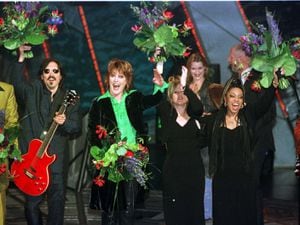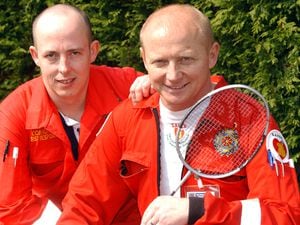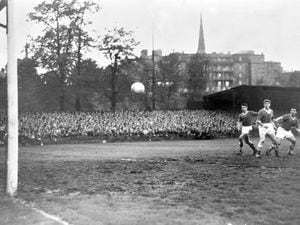On track with memories of Churchill's hush-hush overnight stay
When Winston Churchill came to Newport, he was shunted into a railway siding, and none of the townsfolk got to see him, and weren't actually supposed to know that he was there at all.

Today one of the few people with first hand knowledge of this hush-hush wartime event is 90-year-old Derrik Marston.
"Newport in those days was a small market town, with not a very big population, so the people living in Newport now would not know anything much of what went on in those days. Plus the fact age has taken care of most of the people who were about at that time," says Mr Marston.
His own special insight comes through his family association with the railways, and at the time he was living at Station Cottage, Newport.
"Winston Churchill had been somewhere in the area. They decided to park him up in Newport sidings. As you can imagine, security was very strict. There was a military guard and nobody was allowed anywhere near it. They were there all night.
"We weren't supposed to know. But people do find these things out. We were aware as to who was there.
"The last train in Newport was about 20 to 11 at night. The station then closed. The only railwayman on duty would be the signalman during the night. The station would be locked up. We saw the train, but did not see Mr Churchill, as he was then. He was in there. No doubt about that.
"The town didn't know about it until after it had gone. They went early in the morning on to wherever they were going.
"Newport had a big goods yard and the train was in central sidings. The coal sidings for the coal merchants was one side of the yard. Then where he was parked up for the night was where general stores and what have you were unloaded."
Derrik thinks the incident was in early 1942.
Another high profile wartime visitor to Newport Station was the Chief of the Imperial General Staff, Sir John Dill, whose special train stood overnight in the sidings in February 1941, resuming its journey the following morning.
And he says the last train to stay overnight at Newport was in 1948 when the royal train carrying King George VI and Queen Elizabeth stood for one night in the sidings.
Derrik's grandparents and also his father Bob all worked on the railways - Derrik's maternal grandfatherJohn Hoyle was at one time Newport's stationmaster - although Derrik did not, and was working at Ashworth's timber yard in the town and as it happens he lives in a house built on the site of the long-disappeared yard.
One of his souvenirs is the tail fin of an incendiary bomb which burned out the family home in Swansea, where his father had been promoted to station foreman in 1937, resulting in the family moving there from Newport. In late 1940 Bob Marston was again promoted, to become an Inspector at Stafford, where he lived in lodgings while Derrik and the rest of the family stayed in Swansea.
"In February 1941 we were bombed out. I say bombed out, but we were burnt out. The upper part of the house was all burned with incendiaries."
The house was at 69 Dyfatty Street and Derrik put out the burning incendiary bomb himself by dropping a sandbag on it.
"You don't use water on these. A stirrup pump has two jets on it, and you could use the very fine spray on the incendiary bomb but not a jet. If you used a jet of water it was likely to blow up and cover you with burning magnesium."
Every day, he said, the council dropped sandbags by the streetlight standards.
"There were fires at the back of us, and we were coming out and on our way to the public shelter and the bomb was in the front garden. I thought that a sandbag on that would take care of it."
Made homeless, they moved back to Newport, only to suffer from the attentions of the Luftwaffe once again a few years later thanks to an air-launched V1 bomb which landed on the eastern outskirts of the town on Christmas Eve, 1944.
"I remember waking up in bed covered in broken glass and the loud explosion. My bedroom windows had been blown in, shattered glass was everywhere, but luckily the bedclothes had prevented any injury to me.
"My mother was awake. She was all right. Her windows were all right, facing a different way. She said a train has gone through and she thought it had blown up.
"I said I would go and see what I could find out. I went down to the signal box. There was only the signalman on duty - Mr Medlicott, Jack Medlicott I think - and no-one else on the station. It was closed up.
"When I got to the signalbox there was the signalman as white as a sheet and all the windows blown out of the signalbox. I said: 'Has a train blown up?' He said: "No, your dad has just rung from Stafford. It was a doodlebug. He saw it passing over Stafford and coming this direction.
"I went to see the crater and saw a big hole in the field. There were leaflets strewn around."
These leaflets turned out to be Christmas messages from Allied prisoners of war which were carried as part of the flying bomb's payload, and were gathered up by the authorities.
Mr Marston was not inclined to get souvenirs from the mangled remains of the flying bomb.
"I had already a bag full from Swansea and didn't want any more."





